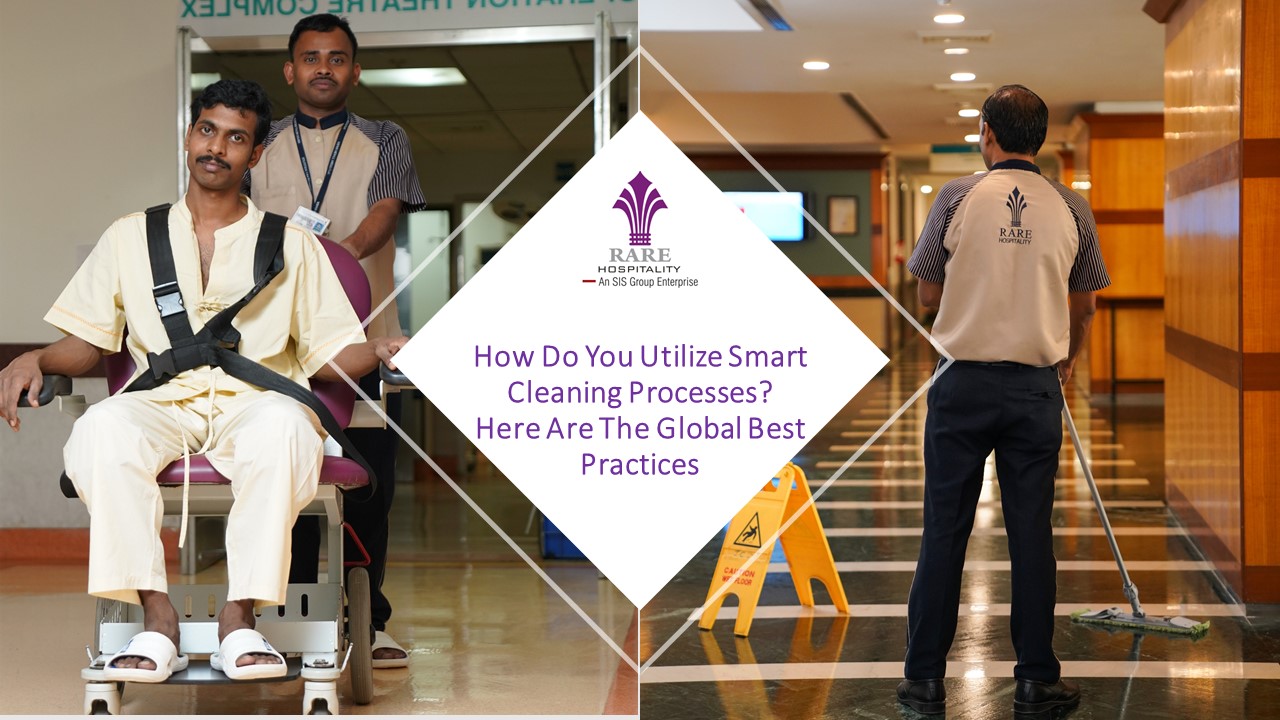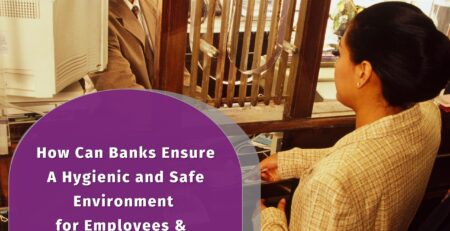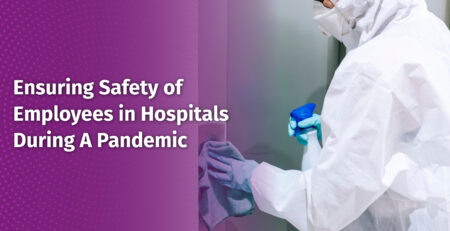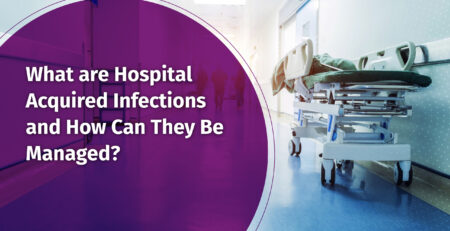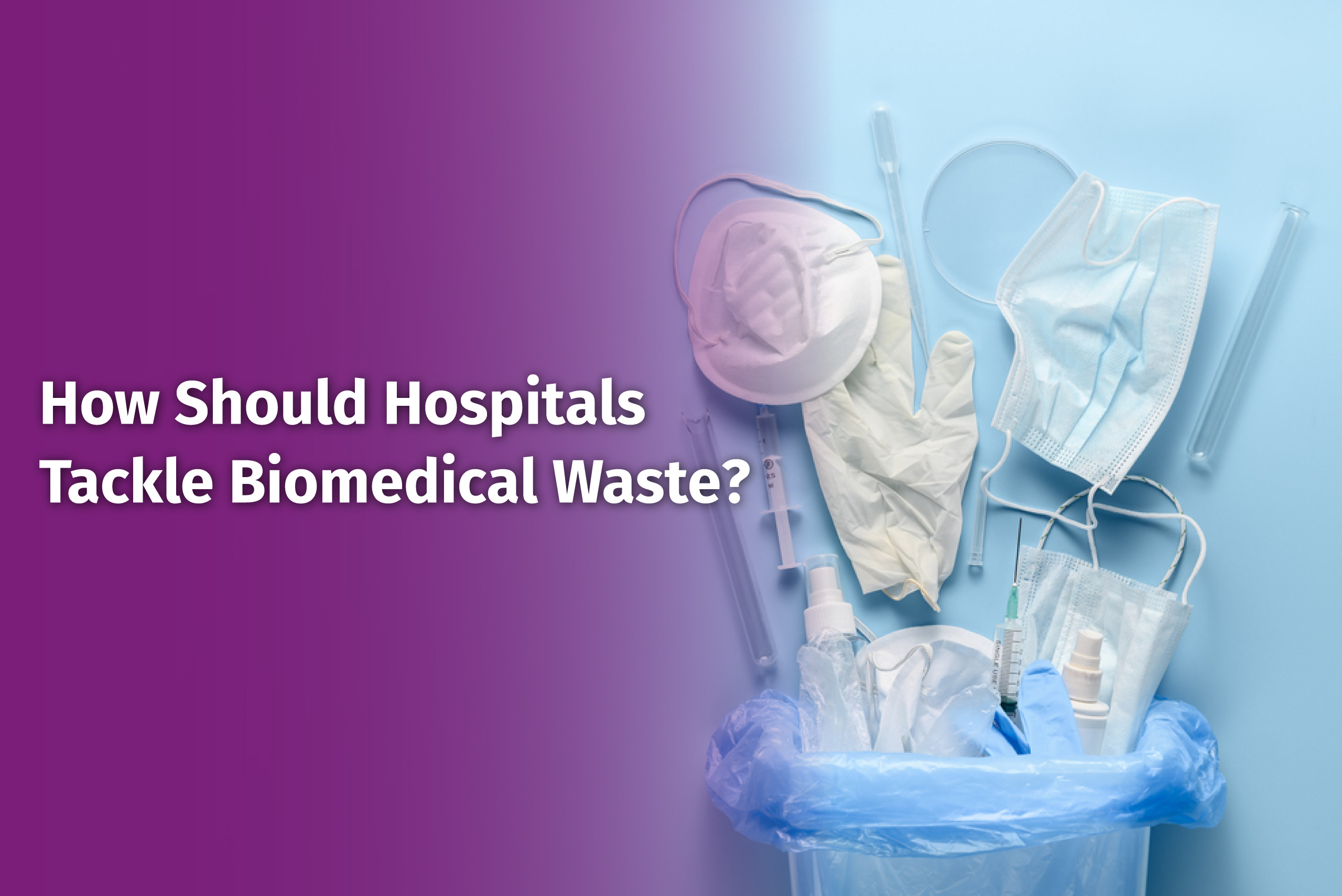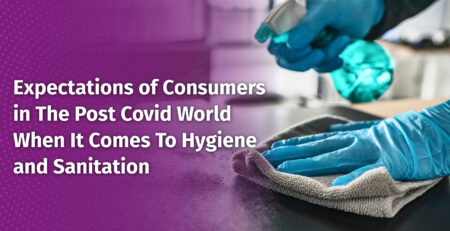Smart Cleaning Processes: Global Best Practices
Over the past few years, the healthcare sector has adapted to many changes in the world. Take the COVID-19 pandemic as an example. Before the pandemic, nobody knew anything about this virus. Today, hospitals, doctors, and medical researchers have found ways to cure people and even protect them with vaccines.
Another aspect that hospitals must adapt to is the change in cleaning processes. The conventional cleaning methods are no longer effective as they used to be. With the evolution of germs and microbes, your cleaning processes must also change.
Smart Cleaning Processes
The conventional cleaning approach involved cleaning surfaces with chemical cleaning supplies and maybe even disinfectants and sanitizers.
The smart cleaning process, on the other hand, takes a more comprehensive approach to cleaning. The different aspects analyzed in this approach are,
- Areas that require more frequent cleaning and disinfecting
- Sectors that need a change in cleaning method
- Departments that can stay clean and sterile even with a lowered frequency in cleaning
- Sectors in your facility that can do better with a combination of different cleaning processes
This way, through deep analysis of your hospital and medical facility’s needs, smart cleaning processes ensure that you create a clean and sterile environment while saving money and resources.
Companies that offer such cleaning services can help you find the right solutions to all these different aspects.
The Importance of Smart Cleaning
Maintaining cleanliness is essential at all places, especially in hospitals. Unclean and unhygienic environments are like an open invitation to germs, viruses, bacteria, and other disease-causing microbes.
Around 5-10% of all patients are affected by at least one hospital-acquired infection (HAI) or nosocomial infection. But how do these germs spread in a facility?
People who are sick generally release such microbes when they cough or sneeze. These germs stay in the hands of people and travel throughout the facility if they do not follow proper hygiene practices. Around 50-70% of HAI are spread through contaminated hands only.
They stay in commonly used areas like washrooms and stick to surfaces like doorknobs, tables, etc. This way, the infections pass from infected people to even healthy individuals. The magnitude of the transmissions can even increase with more powerful viruses like the coronavirus.
While each individual should follow safety measures like washing and sanitizing hands, constantly cleaning and sanitizing commonly used surfaces and touchpoints can significantly help reduce the transmission of the infection.
Smart cleaning can help you identify the common touchpoints in your hospital and find the right solution to eradicate all germs. Therefore, instead of wasting your time and resources on the wrong practices, you can enhance cleaning efficiency with the right ones.
Integrating Technology with Cleaning
Today, with technological advancements covering all industries, the cleaning and maintenance sector has not been neglected. However, instead of simply cleaning the surfaces with regular run-of-the-mill cleaning agents, technology, as well as science, have created the right products and solutions for you.
There are many facility management platforms and tech-based cleaning service providers who are experts in cleaning and disinfecting. One of them is RARE.
RARE Hospitality – An SIS Group Enterprise
RARE hospitality provides rare solutions for all your cleaning and disinfection worries. We offer state-of-the-art cleaning solutions that are effective, safe, and risk-free. Not just cleaning, we also specialize in smart cleaning processes.
Smart Surface Disinfection Program
Our Smart Surface Disinfection Program is a specialized disinfection and hygiene service. To carry out the services in this program, we have trained professionals to follow a mechanized approach to clean surfaces.
The program includes washroom management, floor maintenance, and COVID-compliant disinfecting processes. Our professionals also conduct instant swab tests and use high-tech machines to measure and monitor contamination levels.
Through demand vs. supply and time and motion studies, we also assess and find the right processes and time intervals for cleaning.
Anti-microbial Surface Treatment
Our Anti-microbial Surface Treatment helps eradicate bacteria, viruses, and fungus from surfaces. Through this treatment, you can enjoy a sterile surface for up to 90 days.
But how does it do this?
The anti-microbial treatment creates a shield layer on various surfaces. This shield then attacks the cell membrane, protein, and other internal systems of the microbes. Due to a saline base in the solution, the shield layer retains its effects for 90 days.
This treatment is a proven technique that works on all kinds of surfaces and reduces the transmission of diseases at your medical facility.
Best Practices To Follow
Here are a few practices that you should keep in mind while cleaning and sanitizing your hospital.
- Clean less-used touchpoints first before cleaning the highly used ones. The rule is to always start from the cleaner side and then move to the dirty side to reduce the transmission of germs. For example, go from the patient ward to the patient toilet.
- Similar to the previous point, clean higher surfaces first and then move on to the lower ones.
- Ensure that you begin your cleaning routine with a clean cloth only.
- Follow a proper cleaning schedule or program. At RARE, our disinfection program looks like this,
- Hourly disinfections of high touchpoints
- Executing smart cleaning and infection control programs daily
- Weekly deep cleaning and intensive disinfecting in all areas
- Immediately clean and disinfect any spilled fluids.
- Ensure that you clean your cleaning equipment like buckets and gloves after using them.
- Follow COVID-appropriate protocols like wearing a mask, practicing social distancing, etc.
- Spread awareness on sanitization and cleanliness among patients and hospital employees.
- Apart from surface cleaning and disinfection, maintain proper standards of Indoor Air Quality (IAQ).
- Work with healthcare facility management services for enhanced efficiency.
Conclusion
Smart cleaning in the healthcare sector is essential to reduce diseases and improve the hospital’s hygiene. However, going about the different sanitation duties wrong can increase the spread of infections and germs.
Hence, it is best to let professionally trained sanitation workers do the job. For efficient smart cleaning at your medical facility, work with RARE hospitality today!


